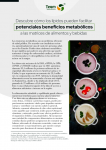Palm oil production may trigger climate bomb
through the destruction of Indonesia's peat swamp forests to
produce palm oil, claims a report released today.
Unilever, Nestle, Cargill and ADM, as well as some leading supermarkets, are all significant users of Indonesian palm oil, alleges the Greenpeace report. Every year, 1.8bn tones of greenhouse gas (GHG) emissions are released by the degradation and burning of Indonesia's peatlands, the report says. This is 4 per cent of global GHG emissions, and comes from 0.1 per cent of the land on earth. Palm oil is a form of vegetable oil obtained from the fruit of the oil palm tree. It has become increasingly popular as a result of its health benefits. Although it contains saturated fats, it is free from artery-clogging trans fats, formed when fats are hydrogenated to make them more solid and extend their shelf life. Larger companies are now choosing to use the oil as a biofuel, considering it a greener alternative to conventional petrol and diesel. However, according to Greenpeace, it is having the opposite effect. John Sauven, executive director of Greenpeace UK, said: "A handful of international corporations are ultimately responsible for slashing and burning Indonesia's peatland forests for products like food, fuel and fabric softener. Some of the best known brands in the UK are literally cooking the climate." In response to the report, Wendy Garbutt from Cargill said that the company has its own policies in place for responsible palm production. She told FoodNavigator.com: "These include commitments that we will not plant on high conservation value forests (HCVF); we will only develop new plantations on degraded land; and we will not develop new plantations on peat land or land that would threaten biodiversity. We also have a strict no-burn policy. "Additionally, we are working with international non-government organizations such as WWF, Conservation International and Flora and Fauna International to protect HCVF and species in and around our plantations." Responding to the harsh allegations in the Guardian newspaper, Unilever said: "Our work… has recently been made harder by the rush into biofuels. We have lobbied hard with governments to alert them to the unintended consequences of this policy on global food supply and deforestation." In a letter to Greenpeace, Nestle was reported as saying it sourced its supplies from "responsible" sources. "At present there is no palm oil that is certified as sustainable. As soon as the principles are adopted, Nestle will do its part in promoting their adoption," they said. The major companies mentioned in the report are all members of the Roundtable on Sustainable Palm Oil (RSPO), which represents 40 per cent of the global production and use of palm oil. Garbutt told FoodNavigator: "The RSPO has undertaken a rigorous and time-consuming stakeholder consultation process to arrive at an agreement on the Principles and Criteria, and the certification procedures, to develop practical and efficient options to promote the growth and use of sustainable palm oil throughout the supply chain." Europe's demand for biofuels is being driven by EU targets covering transport fuels. Earlier this year, the EU Summit endorsed a minimum target for biofuels to constitute 10 per cent of transport fuels by 2020. This is almost double the target of the 2003 Biofuel Directive of a 5.75 per cent contribution by 2010. "Trashing rainforests to grow biofuels is like trying to put out a fire with a petrol can," said Sauven. "The UK government has ignored this and introduced a biofuels obligation with no safety catch - meaning that there's nothing to stop the fruits of forest destruction ending up in our fuel tanks." The Greenpeace investigation concluded that a major palm oil producer is currently engaged in illegal activities including the large scale clearance and destruction of deep peatlands protected under Indonesian law. The report said the palm oil from companies engaged in forest and peatland destruction is then laundered through the entire supply chain, ending up with the well-known companies. Carbon hotspots were detected using satellite imagery of forest fires with maps, which indicated the locations of the densest carbon stores in Indonesia. Riau, on the island of Sumatra was revealed as a particular concern, where a quarter of Indonesia plantations are located. The area of peatland here is only four million hectares - about the size of Switzerland. Yet the report says it stores 14.6bn tones of carbon. If these peatlands were destroyed, the resulting GHG emissions would be the equivalent of one year's total global emissions. Indonesia has apparently destroyed over 28m hectares of forest since 1990, largely for the creation of plantations. The report cites UN figures that predict palm oil production will double, from its present 20.2m tones a year to 40m tones by 2030, and to triple by 2050. Bali, Indonesia, will next month host the UN climate change conference, where counties will open discussions on a worldwide deal to combat global warming.













